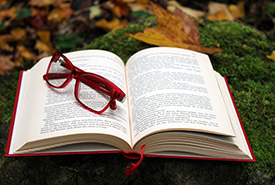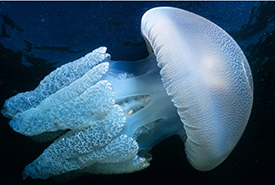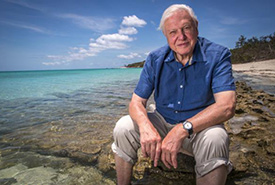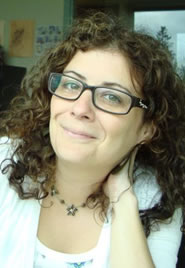We keep hope alive with stories

We keep hope alive with stories (Photo by Holi Ho/CC BY-NC)
“We keep each other alive with our stories. We need to share them, as much as we need to share food.” ~ Barry Lopez
I count myself fortunate to have grown up in a home filled with books and stories. Eeyore will always sound, in my head, vaguely British and vaguely like my dad, who read Winnie the Pooh or Beatrix Potter stories to my brother and me at bedtime. Books lined our living room shelves, and Dad also built shelves to hold our books above our beds. Once I learned to read, I became an unabashed, lifelong bookworm.
But even before I could read, I was fascinated by books. One of my earliest memories is of the thick encyclopedia I’d been given as a present by my parents' friends when I was born. I vividly recall sitting on our living room sofa, my book sitting heavily on my lap, my feet poking out beyond its pages. My little brother sat next to me as I carefully flipped through the rigid, sharp-edged glossy pages that easily cut little fingers. Although I couldn’t read the words in the Larousse Encyclopedia of Animal Life, I was intrigued by the mysterious creatures and worlds pictured in its pages. I could hardly believe that such creatures existed. Some of them, like a lacy white jellyfish floating in a deep blue ocean, seemed almost born from entirely different planets.

Blue blubber jellyfish (Photo by Matty Testoni/CC BY-NC)
I often wonder whether my parents’ friends could have imagined the impact that encyclopedia had on my life. In fact, that book was key in helping me understand that beyond the walls of our home existed a world of unimaginable diversity and richness. The photos were a portal into a magical world to explore and discover.
From there (and from those bedtime stories) began a lifelong love of nature and books, and more importantly, stories. I was, and still am, rarely without a book in progress (or two, or three). When not reading, I also spent many weekends and vacations in nature with my family and with the Girl Guides, whether hiking, canoeing or cross-country skiing. Nature and stories were common themes in my childhood and on into adulthood.
In high school, I became concerned about environmental issues such as the (then) growing hole in the ozone, and practices such as cosmetic testing on animals. Upon graduation, I knew I wanted to find a career that would allow me to use words and stories to inspire others about the natural world, just as my encyclopedia had (and, later, glossy issues of National Geographic that my parents stockpiled in our basement).
As a member of the communications team for the Nature Conservancy of Canada, I’ve been fortunate to be doing just that for more than a decade now — using stories to inspire Canadians across the country about the wonders of our natural spaces and species, to further inspire people to support the conservation of these places. When you work in the conservation or environment sector, it could be easy to surround yourself with negativity. However with 2.8 million acres (more than 1.1 million hectares) conserved from coast to coast since 1962, there have been a lot of successes to celebrate.
Still, it might seem that there has been quite a bit of bad news about the environment of late; whether it’s that we have 12 years to limit climate change catastrophe or that losses in vertebrate species averaged 60 per cent between 1970 and 2014. Sobering news indeed, which in many of us can lead to an increasing sense of urgency to do something. Perhaps there’s also a sense that the problems are so overwhelmingly big, no one person can do enough to address them. We could easily slip into a grim, Eeyore-like sense of despair.

David Attenborough (Photo by the Department of Foreign Affairs and Trade website/CC BY-NC)
Broadcaster, journalist and storyteller David Attenborough was recently quoted as saying that too much alarmism on the environment is counter-productive and can actually be a turn-off. But stories about the successful return of swift foxes to the grasslands of Alberta or the return of butterflies to the Rice Lake Plains in Ontario gives me hope and renews my belief in the importance of storytelling.
Just as my encyclopedia did to me before I even knew my alphabet, storytelling unlocks our imagination and helps connect us to other realities and possibilities. Stories help us imagine a brighter future for our planet and its habitats, and the steps we need to take to make sure we get there. What these recent reports have reminded me is that if we want to inspire change in our world, we need to keep seeking out and sharing stories of hope and success. By inspiring people to find connections to nature, we can then inspire them to participate in change.
And together, we can change the world.


